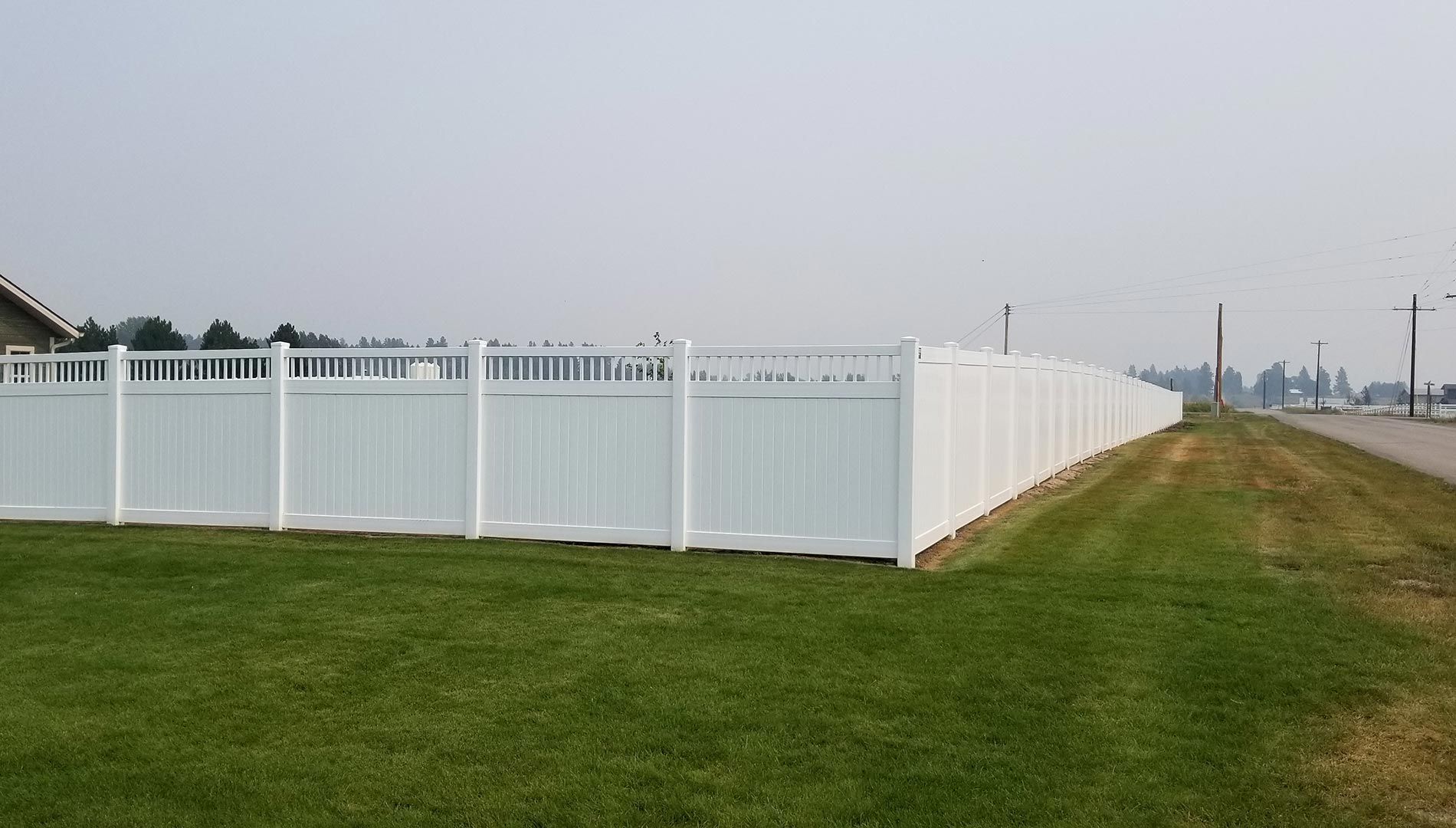Understanding Vinyl and Wood Fencing
When it comes to choosing the perfect fence for your home, the decision often boils down to two popular materials: vinyl and wood. Both options offer unique benefits and drawbacks, making the choice highly dependent on your specific needs, aesthetic preferences, and budget.
In this article, we’ll compare the key features of vinyl and wood fences to help you make an informed decision.

Is Vinyl Fencing Right for You?
- Durability: With excellent resistance to weather conditions, pests, and rot, vinyl fences are built to last.
- Low Maintenance: Vinyl fencing is incredibly low-maintenance, needing only occasional washing, as it doesn’t require painting or staining.
- Cost: The initial cost of vinyl fencing may be higher, but its low maintenance costs make it a more economical choice over time.
- Drawback: Vinyl fences offer fewer color and style options, which might limit customization to match your home’s aesthetic.
Is a Wood Fence the Right Choice for You?
- Aesthetic Appeal: Wood fences are loved for their classic, natural beauty, and they can be customized with different stains or finishes.
- Cost: Typically, wood fences are less expensive upfront compared to vinyl.
- Maintenance: To keep wood fences in good condition, you must regularly paint, stain, and repair them to avoid issues like rot and pest damage.
- Lifespan: While wood fences can last many years, they often have a shorter lifespan compared to vinyl, especially in harsh climates.
Cost Comparison: Which Offers Better Value?
While vinyl fences tend to cost more initially, they can save you money over time thanks to lower maintenance needs. On the other hand, wood fences may be cheaper to install but require frequent upkeep.
Vinyl offers long-term value, especially for those looking for minimal upkeep, while wood may be more affordable for those on a tight budget or with temporary needs.
Which Fencing Material is More Eco-Friendly?
While wood is considered more eco-friendly due to being a renewable resource, treated wood may contain harmful chemicals. Vinyl, though not biodegradable, has a longer lifespan, which can minimize its environmental impact.
For a more sustainable option, look for wood that is sustainably sourced or vinyl made from recycled materials.
